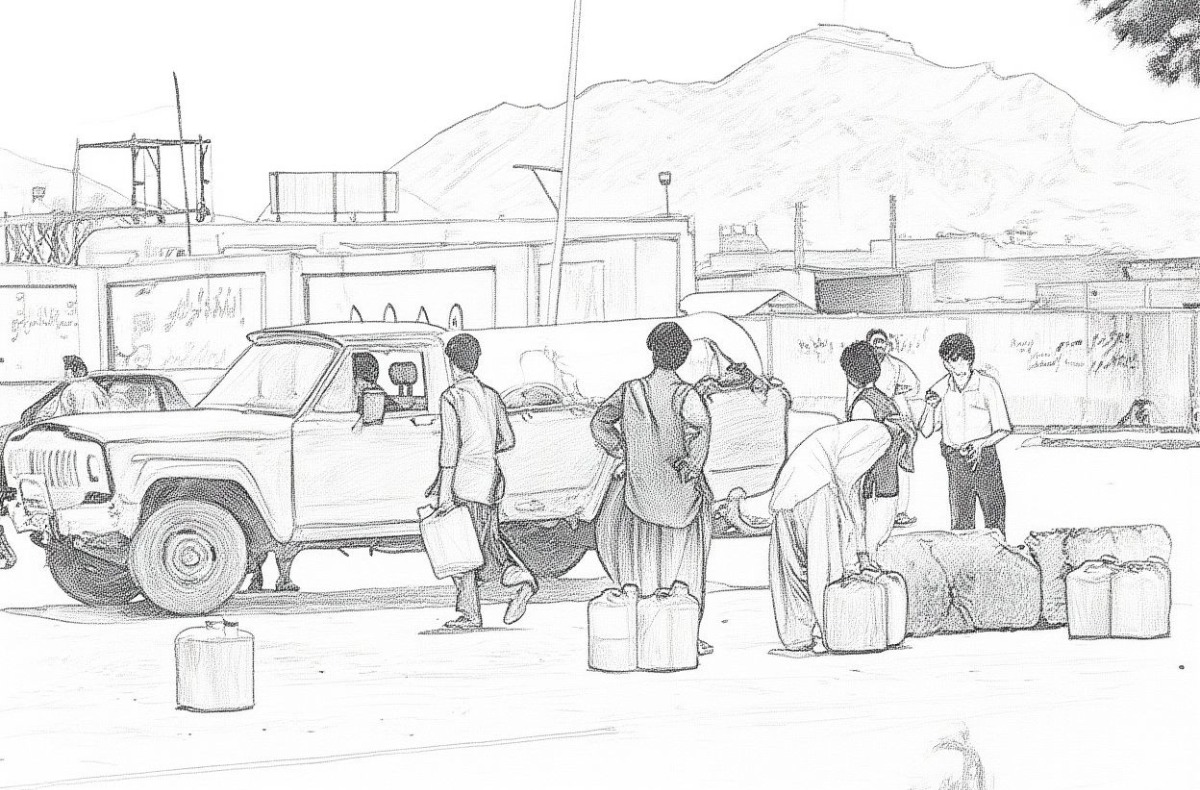According to Pezhvak-e Kar Iran, citing local media and social networks, at least seven fuel carriers have either lost their lives or been injured on the roads of Baluchistan in recent days. These incidents, which occurred along different routes of the province, reflect the harsh conditions that force many workers in the region into this dangerous livelihood.
Mehrestan – Soran (August 18, 2025)
On the morning of Monday, August 18, a fuel-carrying vehicle overturned and caught fire on the Mehrestan–Soran road. In this accident, Naser Dehani, son of Gol-Mohammad, married and a resident of Kahnemgar village in Mehrestan, died instantly. His companion managed to escape the vehicle before the flames spread but was severely injured and transferred to Razi Hospital in Saravan.
Golshan (August 17, 2025)
On Sunday, August 17, Ahmad Rigi (Janokhanzahi), about 27 years old, from Naserabad village of Khash, was killed by a landmine explosion in the border area of Bachah-Rahi, Kolgan district of Golshan. He was riding a motorcycle when he hit the mine and died instantly from the blast.
Mirjaveh (August 17, 2025)
On the evening of the same day, a fuel-carrying vehicle overturned on the Jonabad road near Mirjaveh. In this incident, Baloch Rigi (Jarizehi) lost his life, and his brother Mobin Rigi (Jarizehi) was seriously injured and transferred to Khatam al-Anbiya Hospital in Zahedan. Both were residents of Andu village in Mirjaveh.
Kalchat – Khash (August 16, 2025)
On Saturday night, August 16, a Saipa fuel carrier overturned and caught fire on the Kalchat–Khash road. Two passengers were severely injured and taken to medical centers. Their identities have not yet been confirmed.
Conclusion
The repetition of such deadly accidents shows that a large portion of the unemployed and impoverished workers of Baluchistan are pushed into fuel carrying. For them, fuel smuggling is not a free choice but a last resort for survival and supporting their families. Yet this work—essentially a form of “forced labor under poverty”—endangers their lives every day, leaving families in grief and deeper destitution.
The primary responsibility for this situation lies with a government that, by imposing widespread poverty and unemployment, drives people into such deadly occupations.

